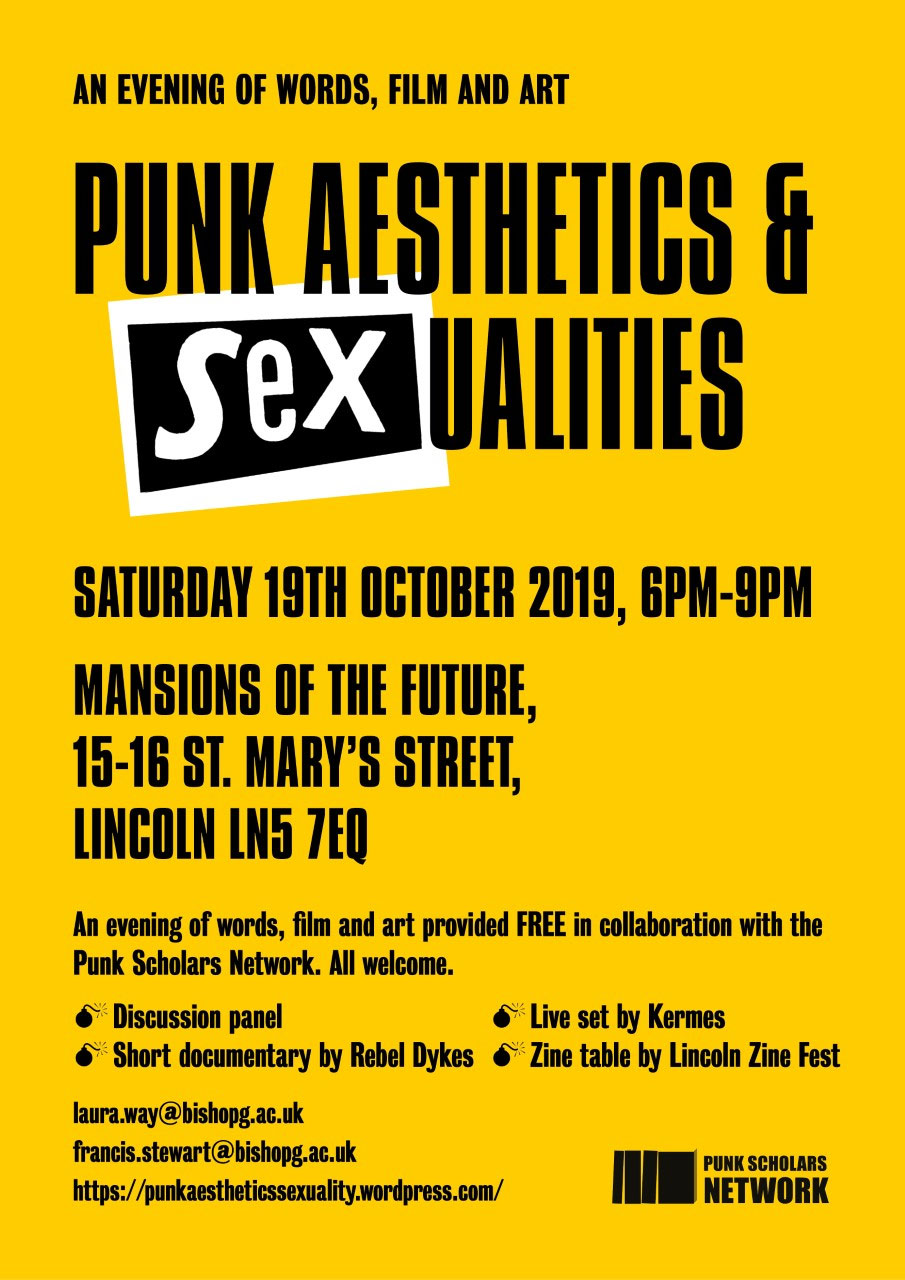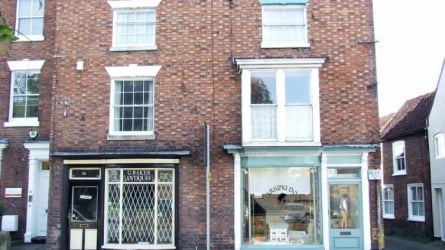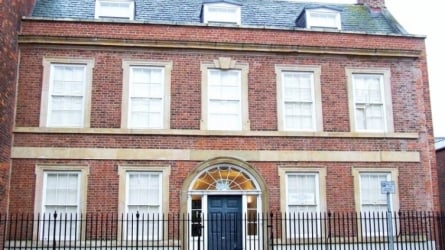According to Lincoln Castle’s current exhibition (Bondage to Liberation, running until 16/11/19), the 1970s punk movement can be epitomised in the work of designer Vivienne Westwood, and the radical artist and activist Jamie Reid.
The key common denominator of the two being the band The Sex Pistols; who are time and time again held up as the markers of the British punk scene.
When thinking about cultural history, and cultural heritage, it’s important to ask questions about who/what is represented and why.
As researchers with both personal and academic relationships to punk, we would argue that exhibitions, such as that currently at Lincoln Castle, uphold particular representations of what punk was, what punk is and what punk means.
Representations are just that, a re-presentation – rather than a reflection of reality – but these re-presentations can have important consequences. Representations can privilege some voices and make others invisible, something we argue to be the case with the Bondage to Liberation exhibition.

Within this exhibition the prominence of the already well known figures of Westwood, McLaren, Reid and The Sex Pistols serve to obscure, yet benefit from, their connections with LGBTQAI punks and the LGBATQAI communities whose voices and contributions are silenced yet without whom the shop Sex would not have been so shocking and so successful.
We don’t need to hear and see more of the same, we want re-presentations of punk that focuses on its diversity, on the broad spectrum of people drawn to it and shaped by it, and whose stories and experiences are what punk is.

Kermes will be performing at the event
In response to the castle’s exhibition, we have organised an event to make some of those invisible voices heard. Taking place at Mansions of the Future in Lincoln city centre on Saturday, October 19, we will be hosting an evening titled ‘Punk Aesthetics and Sexuality/ies’ which will comprise of a discussion panel, a short documentary and a live band.
Our discussion panel will feature representatives from the UK LGBTQAI ‘zine community, Emily Rose Teece (musician, filmmaker and trans activist) and academics including Dr Rebecca Binns who is currently working on a book based on her research on the artist Gee Vaucher (best known for her work with anarcho-punk band and collective Crass).
There will be a short documentary from the Rebel Dykes and a live set from Kermes from Leicester. In trying to make this event as inclusive as possible (as punk should be), there is no charge for attending though places must be booked as spaces are limited.
Dr Francis Stewart is a research fellow in theology and Dr Laura Way a lecturer in sociology, both based at Bishop Grosseteste University in Lincoln. They are steering committee members of the Punk Scholars Network, an international network for students and researchers in punk and punk related topics. Further information can be found here: http://www.punkscholars.net/





 Whatsapp
Whatsapp











